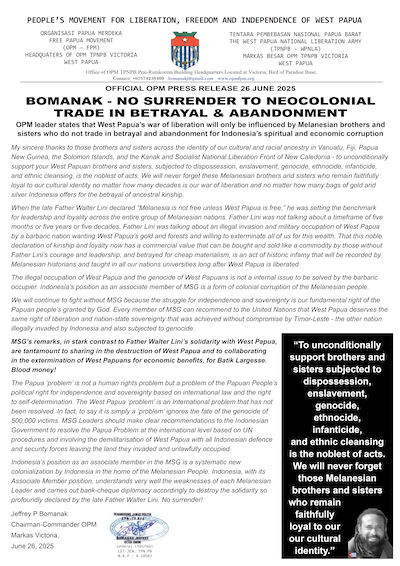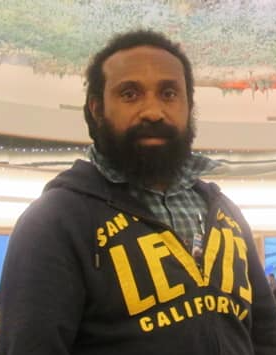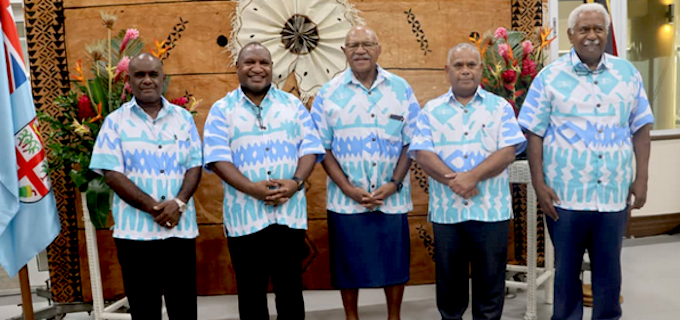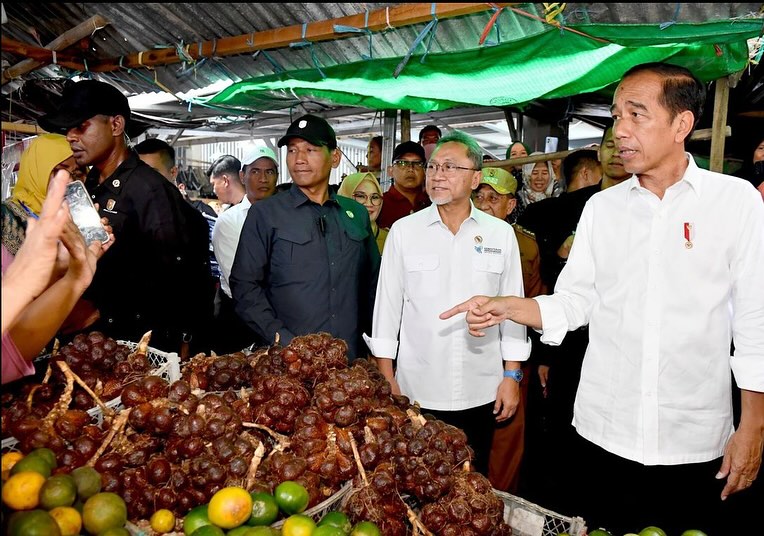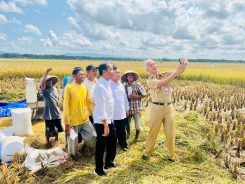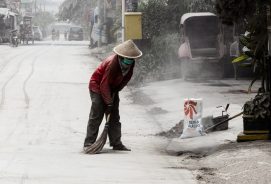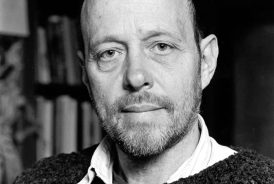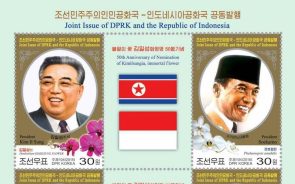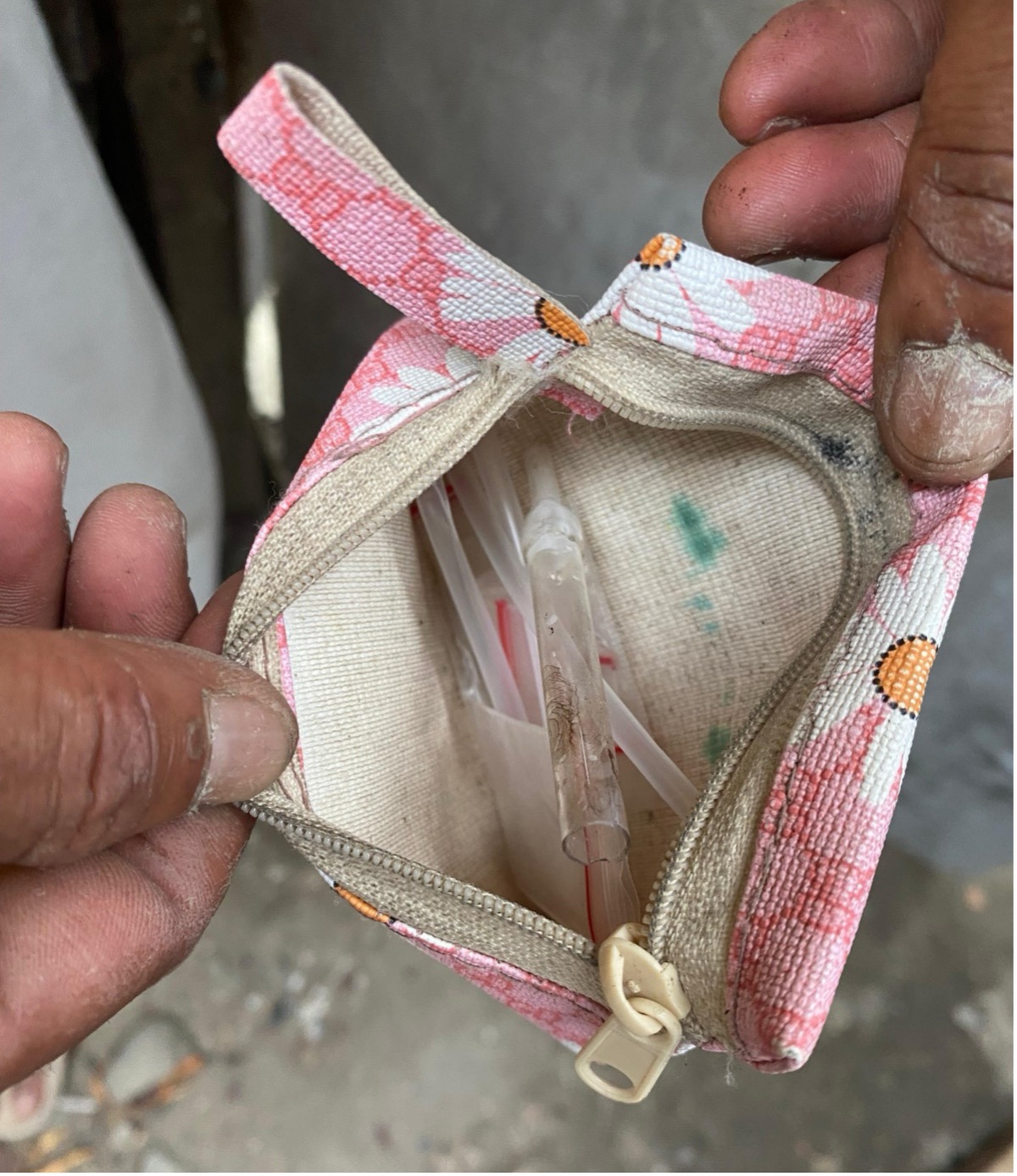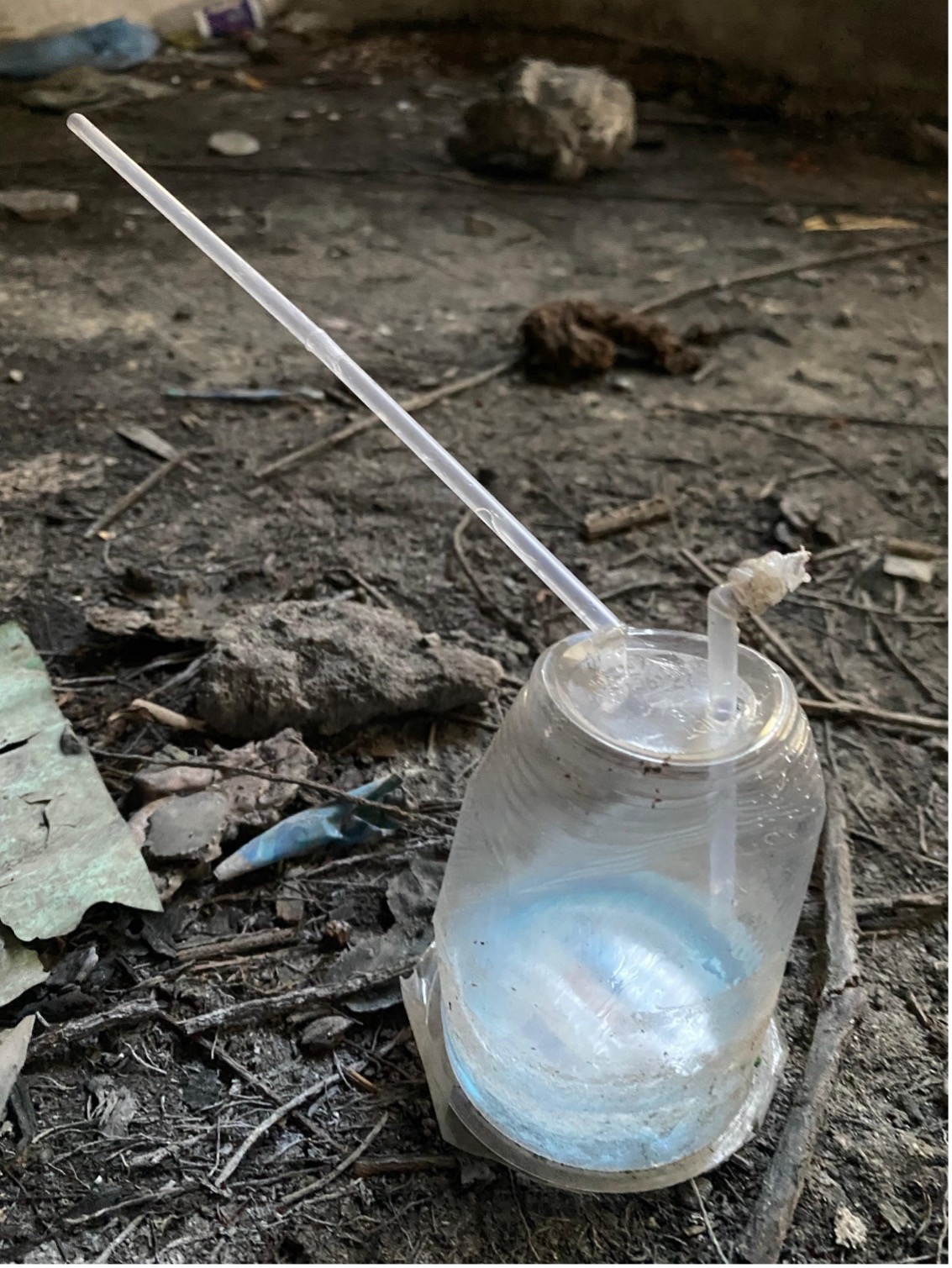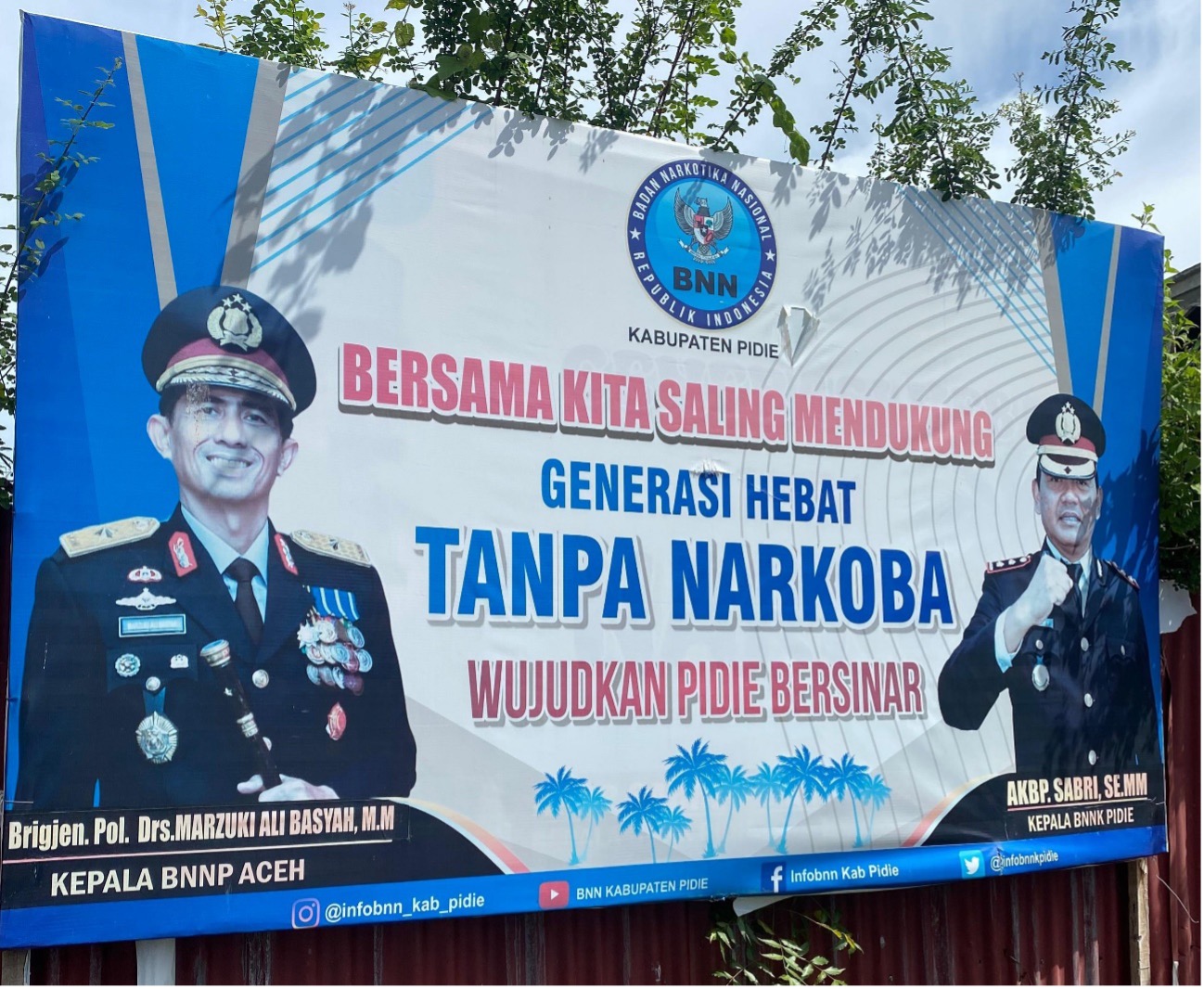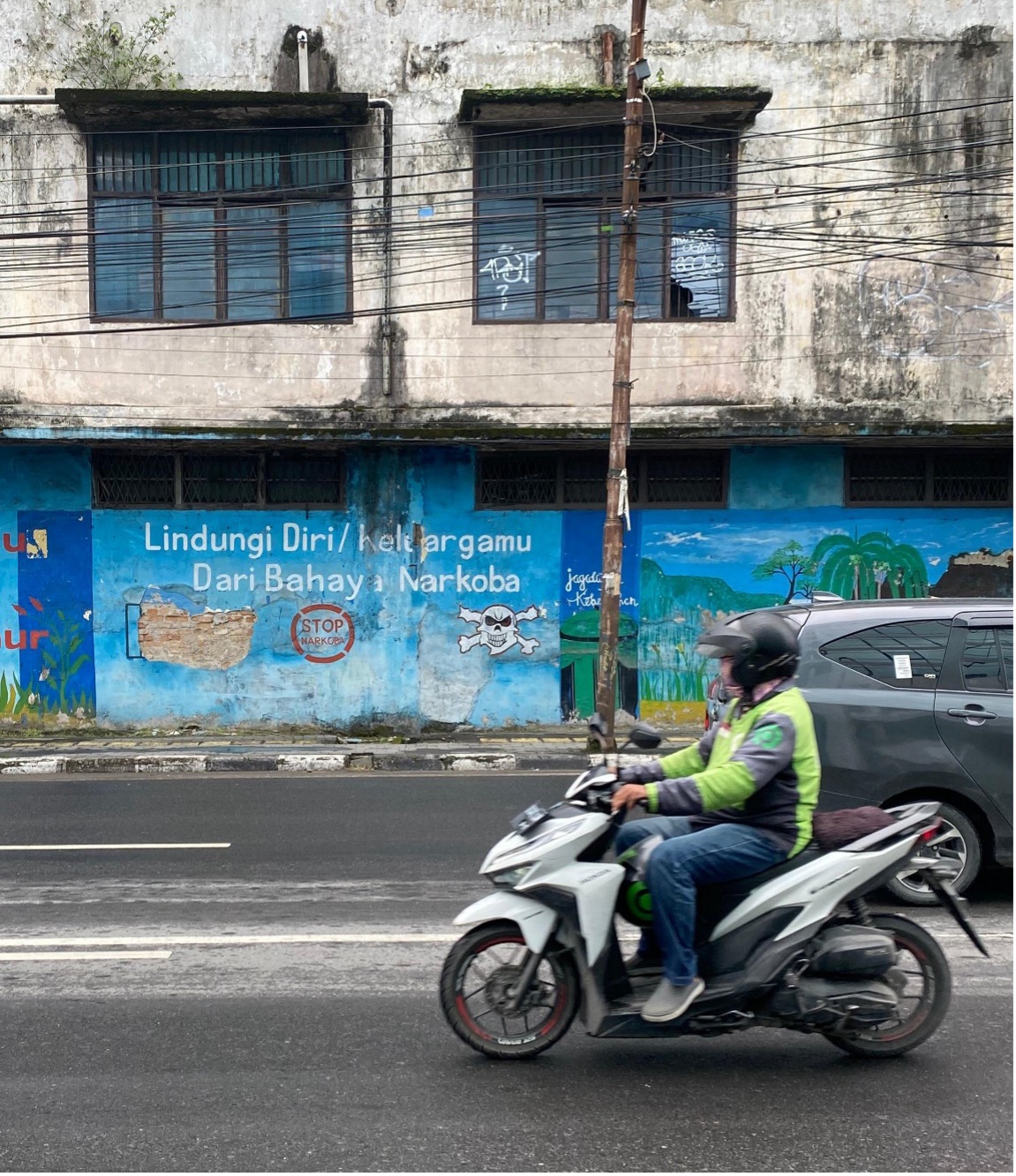Open your fridge, pantry, or bathroom cabinet, and you’re likely to find a product containing carrageenan, a gelling substance derived from red seaweed. It is an essential part of modern daily life, found in everything from processed foods to cosmetics and medicine.
A thickener in your yoghurt and a stabiliser in your shampoo, carrageenan is used all over the world, but it comes primarily from one place: Indonesia, where seaweed is almost exclusively harvested by household operators. A boom in the industry, born of surging demand for carrageenan, has lately integrated these producers into the global market. The results are rapidly reshaping not only the economy of rural coastal Indonesia, but also its physical, social, and political landscape.
My doctoral research concentrated on how this has played out in South Sulawesi province, which is home to 11% of Indonesian households involved in marine fisheries—the highest proportion of all Indonesia’s provinces. As they become more connected to global fisheries markets, control over increasingly valuable sea space becomes more contested, and conflicts intensify. When villagers reach out to grassroots state actors for mediation and formalisation of their claims, new institutions governing resource access emerge, disrupting longstanding norms of collective ownership and transforming communal property into a privatised commodity. By examining this process, my research underscores how the privatisation of common-pool resources—shaped by global market forces and state intervention—has redefined local institutions of access, shifting from traditional, collective governance to new, market-driven forms of resource control.
Centuries-old maritime commerce
South Sulawesi’s coastal communities have a long history of regional and international trade, being rooted in the maritime culture of the Bugis and Makassaresse, the two largest ethnic groups in the region, whose maritime commerce dates back to at least the 5th century, peaking between the 15th and 18th centuries.
Makassar, the provincial capital, was a key trading hub for commodities such as spices and sea cucumber (trepang), connecting South Sulawesi to China, India, and the Malay Peninsula. Bugis–Makassar fishers even expanded their fishing grounds to northern Australia. After losing dominance over regional trade routes to European colonial powers in the 18th century, the Bugis and Makassaresse adapted by engaging in new marine commodities, such as shrimp, crab, and seaweed.
My research focused on two coastal villages, Laikang Village in Takalar District and Pitu Sunggu Village in Pangkep District.

Location of research sites in South Sulawesi (Image: Indonesian Geospatial Information Agency)
Laikang is a Makassarese village located along an 8-kilometre coastline facing the Flores Sea. Until the 1990s, most households there relied on farming, with coastal residents balancing farming and subsistence fishing, while landless families often depended on fishing, farm labour, and seasonal migration. The village transitioned from land-based farming to seaweed cultivation after a surge in global prices in the early 2000s.
The second site, Pitu Sunggu, is a smaller Bugis village along the Makassar Strait. It saw a surge in shrimp production in the 1990s, driven by demand from the United States and Japan. This led to the conversion of rice fields into shrimp ponds (tambak), which became especially profitable when the value of the rupiah collapsed during the 1997–98 Asian Financial Crisis, bringing considerable wealth to landowners. Many of today’s village leaders emerged from those prosperous tambak families. When shrimp farming declined due to disease outbreaks, seaweed cultivation arrived in the village around 2007, with former fishers and tambak farmers turning to it as a new primary source of livelihood.
In both Laikang and Pitu Sunggu, demand from US firms like Phillip Seafood has since the early 2000s also fuelled crabbing, particularly because the two crops’ respective high and low seasons coincide. Today, both villages have diversified economies. Wealthier families are involved in seaweed and crab trading and processing, while poorer households continue to depend on fishing, crabbing, seasonal migration, and casual work, particularly in seaweed farming and crab processing facilities.
How carrageenan reshaped coastal livelihoods
In South Sulawesi, red seaweeds are major crops for carrageenan production. To cultivate them, farmers require sea space (locally known as lokasi), along with seeds, plastic bottle floats, nylon ropes, and small boats. Labour is divided by gender: women usually handle the labour-intensive task of binding seeds—which often requires the hiring of paid workers—while men are responsible for planting, maintaining, and harvesting the seaweed at sea.
Seaweed is harvested 40 to 45 days after planting, requiring significant upfront costs. Some farmers are self-funded, but many depend on loans from village traders, who provide not only financing for farming but also for personal needs like school fees, healthcare, and cultural ceremonies. After harvest, the seaweed is sun-dried and traders sell it to exporters or processors in Makassar—often financially supported by overseas buyers, mainly from China.

L: Women workers tie seaweed seeds before planting them in Laikang, 30 May 2022. R: Red seaweed is sun-dried on a pier in Pitu Sunggu after harvest, 12 June 2022. (Photos: author)
Before the rise of seaweed cultivation, the coastal waters of South Sulawesi villages were seen as communal property, freely accessible to local fishermen and families for harvesting marine resources, both for subsistence and income. Villagers employed various fishing methods, sometimes involving a more permanent use of sea space to construct bamboo fish traps like bagang or serobila. The first-come-first-served principle applied, with villagers investing labour and capital to claim exclusive access rights over certain areas and establish a sense of ownership over them. Until recently such claims were not common, as most villagers were engaged in land-based agriculture—growing crops like rice, corn, sweet potatoes, and mung beans.
As demand for carrageenan seaweed surged, however, the situation began to change. Seaweed farming, introduced in the 1990s and booming after 2010, gained popularity due to rising global demand for carrageenan in the food processing sector, as well as innovations in low-cost processing technology, which made it a more appealing additives for various industries. For many fishing households in South Sulawesi, the promise of higher earnings prompted a shift away from traditional fishing, leading to increased competition for sea space to establish seaweed plots.

The tall bamboo structure is a traditional “bagang” fish trap standing next to structures used for seaweed and lobster farming in Laikang (Photo: Risya Arsyi)
Growing competition and disparity
The customary rules governing bagang and serobila fishing traps in South Sulawesi served as precursors to claims over sea space for seaweed farming. Though access was generally open, it often depended on one’s social identity as a local resident. In the early years of seaweed farming, migrants could still secure plots. But as the value of sea space increased with rising global prices of seaweed, the local identity factor became more critical. In 2021, Indonesia’s Central Statistics Agency estimated that approximately 90% of Indonesia’s seaweed farmers cultivated the crop within their own villages. While these sea space claims are not formally recognised by state authorities, villagers often refer to them with terms such as “own” (milik) or “have” (punya) in everyday conversation, implying a widely understood sense of ownership. Some villagers even considered these access rights permanent, believing they could pass them down to their children, and many did so.
However, the practice was not without challenges and disputes. Competition for sea space intensified in 2014, as more villagers sought to establish lokasi in the wake of several years of surging seaweed prices. Many villagers who worked in other places returned to Laikang and Pitu Sunggu to secure plots, with each rise in seaweed prices spurring new claims. While wealthier households were better positioned to capitalise on this situation, many poor fishers in the coastal hamlets did the same, often with financial support from traders who provided loans in exchange for future harvests.
The profitability of seaweed farming became clear, and speculation soon followed. Some villagers staked claims by marking lokasi without bringing them into production, resulting in many sites being left underutilised and causing tensions between those with large holdings and those with smaller or no holdings. This issue became more pronounced recently, especially when seaweed prices continued to rise, reaching a historic high in 2022.

A traditional serobila fishing trap is seen from above (https-:adycandra.com:sero:) and from the side in Laikang, 17 May 2022 (Photo: author)
By the late 2010s, the most productive seaweed farming areas had already been claimed, turning sea space into valuable individual assets, with access largely controlled by early claimants. The commodification of sea space expanded through mechanisms like selling, leasing, and sharecropping. While being a local resident was not required for participation, social networks remained crucial. Latecomers and outsiders, like one man who bought a lokasi for Rp3 million in 2017 without a written agreement (a common practice for transferring lokasi rights), had to negotiate access through local social structures. Having previously been a rice farmer, he found earning money from the sea much easier than from the land. Others gained temporary access by “borrowing” lokasi, often from family or by maintaining good relations with early claimants. Lending was seen as an act of goodwill, strengthening social ties and fostering a sense of obligation from the recipient. As one wealthy seaweed farmer explained to me: lending plots helped build relationships for future assistance. Another one said he often received seaweed or seeds from a relative who used his plot.
Despite the sense of community and mutual support, not everyone benefited equally. While wealthy pioneers often emphasised community values and referred to the farming collective as “family”, poorer farmers felt the increasing disparity. One farmer in his mid-50s, limited by a small plot and lacking capital for quality seed and equipment, expressed frustration, saying: “the rich get richer because they benefit the most from seaweed farming, but we are not getting anywhere”.
As the value of seaweed farming areas grew, social and economic stratification deepened. What was once an open-access system evolved into a more complex sociopolitical landscape, where historical claims, social networks, and capital determined who could access sea space. Early pioneers reaped rewards as seaweed prices surged, expanded their holdings, hired workers, or diversified into trade. Others, however, were limited to smaller operations. While seaweed farming created economic opportunities for coastal communities, it also soon fuelled tensions within them.
Conflict over sea space
In the early days of seaweed farming, when South Sulawesi coastal waters were used primarily for fishing, tensions between seaweed cultivators and fishers were common, sometimes escalating to violence. Seaweed farms obstructed access to fishing grounds and risked of entangling nets, which led some fishers to deliberately damage seaweed lines. Both sides claimed the sea as common property, justifying their rights to use it. Despite attempts at mediation from village authorities, these tensions existed until the late 2000s, when a shift occurred: many fishers, faced with declining fish stocks due to overfishing, turned to farming seaweed. This transition not only transformed the local economy, but also social structures and institutions, driven by new norms and practices within the community.
As seaweed farming became the dominant livelihood, its economic importance and larger investments created foundations for conflict resolution. While conflict between fishers and seaweed farmers decreased, tensions began to rise among the farmers themselves. A 50-year-old female seaweed binder told me there were so many conflicts over lokasi that “sometimes brothers fight with each other; fathers fight with their sons”.

Cultivated seaweed plot (“lokasi”) in Pitu Sunggu, 15 June 2022 (Photo: author)
The most common disputes stem from overlapping claims—often on uncultivated lokasi or when one party seeks to expand their area. A 2012 case from Pitu Sunggu illustrates the dynamics of such disputes. When Ridwan (not his real name) took a job in Kalimantan and allowed Hamid (name also changed) to use his lokasi under a verbal agreement that he would reclaim it upon his return. Verbal agreements, typically witnessed by neighbours, are a customary way to transfer lokasi rights. However, when Ridwan returned in 2018, he found Hamid’s son cultivating the site. Hamid then asked Ridwan to share part of it with his son, who had no plots at the time. Reluctantly, Ridwan acquiesced, saying, “I was being kind”—a sentiment laced with both resentment and social pressure.
Disputes frequently arise along boundary markers. Ilham (also a pseudonym) explained the subtle nature of such conflicts: “Some people move their lines and anchors little by little until they cross into the boundaries of others’ uncultivated locations. When the owner of that lokasi complains, they claim it’s been there all along”. This highlights the inherent challenges in establishing and enforcing claims to sea space.
Another source of conflict is the violation of common space. In both villages, there has long been an understanding that the spaces between plots should remain open. Yet with the surge in seaweed prices in 2021–22, some farmers began expanding into these paths. While they initially faced strong social rebuke from fellow cultivators, congestion worsened by 2022, eventually reaching the pier area. One farmer, frustrated by the encroachment, recalled warning an encroaching cultivator’s uncle: “I won’t be responsible if your nephew’s ropes get damaged in the boatways”. This led to a physical altercation, requiring mediation by a village leader to preserve the open boatway.
But enforcing community norms has its limits, especially when disputes involve powerful local elites. For marginalised groups, asserting rights to common spaces often requires courage, and they typically avoid direct confrontations. Many fear damaging relations with influential figures—such as seaweed traders and employers—or facing social exclusion that could threaten their already vulnerable livelihoods.
Creating “an air of legality” in resource distribution
Across Indonesia and much of the Global South, smallholders like South Sulawesi’s seaweed farmers are increasingly integrated into industrialised value chains, navigating the boom-and-bust cycles of global commodity markets while contending with local dynamics. Despite these pressures, they exhibit adaptability in response to shifting livelihood opportunities. The seaweed expansion in South Sulawesi shows how global market integration not only transforms local economies but also reshapes resource governance and power structures, as it intersects with local social norms and unequal resource distribution. While these informal institutions reflect local agency and adaptability, competition for resources frequently leads to conflict—and the state often looms large as the ultimate authority in protecting resource access and property claims.
Related
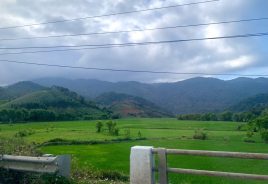
How state-building can work from the bottom up
Thus while claims to sea space in my field sites are often legitimised through informal practices, resolving disputes typically requires appealing to authority. In both villages, local leaders, despite lacking a clear legal mandate, have played an active role in mediating conflict, sometimes with success. This dynamic creates a fluid relationship between informal institutions and formal authority. As uncertainty over the permanence of claims became a major source of discord, in 2019, for example, the village government of Laikang sought to reinforce its authority over sea space by drafting a village regulation aimed at formalising and adjusting the informal rules governing access.
The draft regulation proposed a rather progressive reform: any lokasi abandoned for three consecutive years would revert to the common resource pool, making it available for others to use. The process would involve consultations with both the village government and the previous owner to reach a mutually beneficial solution, including a compensation mechanism. This shift, which challenged the traditional permanence of rights held by lokasi owners, sparked intense debate within the community. Those with smaller lokasi generally supported the draft, seeing it as a way to achieve a fairer redistribution of resource access, while those with larger or multiple lokasi saw it as a violation of established practices.
The draft village regulation sought to formalise claims over sea space, placing enforcement responsibility on state authorities. Though not grounded in statutory law, it would provide an “air of legality” by involving state structures. At the time, many villagers were inclined to follow the lead of their relatively well-educated leaders who were not reliant on seaweed farming for their livelihoods. But a subsequent change in village leadership—marked by economic and political interests favouring the status quo—led to a decline in the village government’s commitment to these reforms.
Indonesia already has a legal framework governing coastal space, although it is not widely known or understood among local communities. The 2007 Law on the Management of Coastal Zones and Small Islands mandates that regional governments to establish marine zoning plans, and requires permits to be issued by provincial—not village—authorities, except for recognised so-called adat communities—often Indigenous groups that follow traditional laws. While villagers were unaware of these regulations, the provincial Bureau of Maritime Affairs and Fisheries was well-informed about the informal use of sea space but said it was currently focusing on large enterprises operating beyond four miles offshore. Regulations restrict large-scale seaweed farming to areas beyond four miles offshore to prevent competition with small-scale fishers, and obtaining permits requires community approval.
But when the government announced in 2022 that several large companies had expressed interest in seaweed production in South Sulawesi, and two were eventually granted location permits, their operations were halted due to community resistance, which called for fairer distribution of profits. Many villagers expressed doubts about greater government involvement, uncertain if it would protect their property rights or lead to dispossession.
This tension underscores broader concerns about increasing state control, which is often seen as reducing local access to resources and shifting power to external actors. In practice, control over sea space in these villages remains a hybrid system, where informal community norms coexist with state authority.
Conclusion
The integration of South Sulawesi’s coastal communities into the global seaweed market has transformed coastal sea space from communal property into a privatised commodity. As in many other parts of the Global South, this process has given rise to new ways for communities to determine access to resources is based on factors like capital, social identity and relationships, and labour, reflecting the mechanisms outlined in Ribot and Peluso’s access theory. Indeed, this shift parallels the commodification of land in other parts of Indonesia where, as Tania Li has detailed, communities similarly use the term lokasi to establish permanent ownership. As seaweed farming expanded, maritime lokasi became commercialised—bought, leased, and sharecropped—yet what Nancy Peluso has called an “ethic of access” persists, allowing for shared use to resolve conflicts and maintain social harmony.
But while possession may well be nine-tenths of the law in Indonesia—the remaining one-tenth, the formal recognition by state authorities, still plays a crucial role, particularly when possession is contested. However, seeking state intervention carries risks, as legal systems can be manipulated by predatory governments, leading to dispossession of local communities. Although the Indonesian state has played a relatively minor role in mediating coastal space rights, my research shows signs of its increasing involvement, especially as powerful industrial actors begin to show interest in these areas. As pressures from both the market and the state’s expanding role are growing, how coastal communities in South Sulawesi will navigate these shifts in governance will become a pivotal challenge—one that will shape their future access to key resources and the security of their livelihoods.
••••••••••
Acknowledgements
This article is based on a chapter from the author’s PhD thesis that was also published as a co-authored article at the Journal of Agrarian Change. The PhD thesis was funded by Australia’s Department of Foreign Affairs and Trade through the Australia Awards Scholarship. The author wishes to acknowledge Zulung Walyandra, Radhiah Ruhon, Risya Arsyi, Imran Lapong, Aqilah Nurul Khaerani Latif, Mustakim Saleh, and the Partnership of Australia Indonesia Research (PAIR) project team for their invaluable contributions and assistance during fieldwork in South Sulawesi. The author is also profoundly thankful to the local communities in the two villages of South Sulawesi for their hospitality and cooperation during the 2022 fieldwork.
The post Sea space, conflict and state building in Sulawesi appeared first on New Mandala.
This post was originally published on New Mandala.
